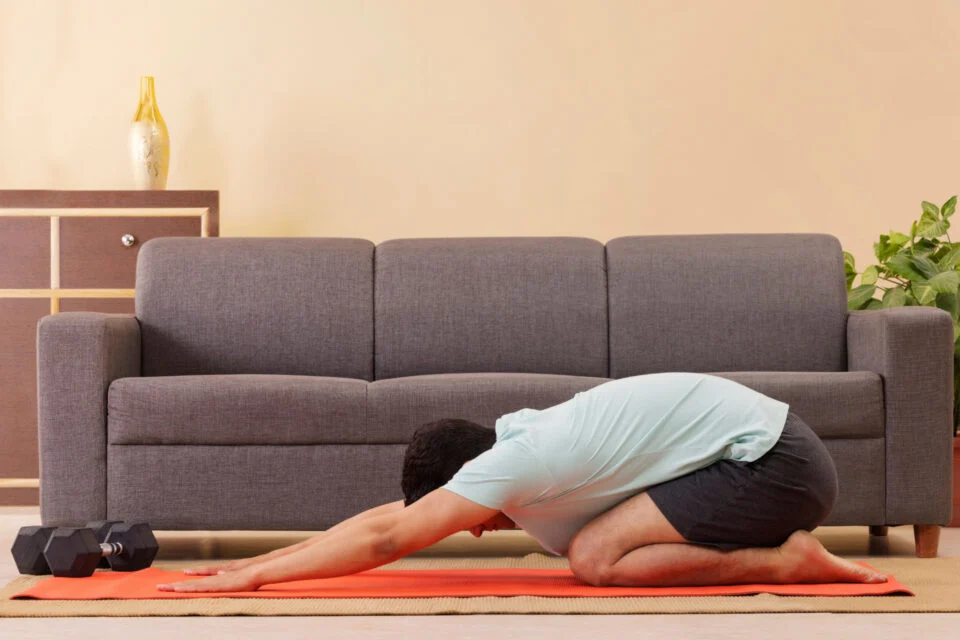When you’re running on empty, the idea of starting a new workout routine might feel overwhelming. But according to a new study, physical activity and sleep may be more connected than you think. Getting physically active could be the key to achieving better, deeper rest. Researchers in China have found strong evidence that exercise—especially gentle, mind-body forms like yoga, Tai Chi, and jogging—can significantly improve sleep quality and duration, offering hope for millions struggling with insomnia.
Physical Activity and Sleep: A Natural Remedy for Insomnia
The study, published in BMJ Evidence-Based Medicine, reviewed data from 22 clinical trials involving over 1,300 participants. These trials compared various interventions for insomnia, such as cognitive-behavioral therapy (CBT), different types of exercise, and lifestyle changes like stretching or basic health advice.
As expected, CBT proved highly effective in improving sleep. However, several physical activities also showed notable benefits. For example:
- Yoga helped participants sleep nearly two hours longer on average compared to those in control groups.
- Walking and jogging significantly reduced the severity of insomnia symptoms.
- Tai Chi offered the most powerful improvement in sleep quality among all the exercises studied.
Lead author Zhi-jun Bu, who conducted the research while at Beijing University of Chinese Medicine, emphasized that physical activity and sleep are closely intertwined. Exercise should be considered a frontline, low-cost, and low-risk treatment option for insomnia.
How Does Physical Activity Improve Sleep?
Although more research is needed, scientists have several compelling theories about the relationship between physical activity and sleep:
- Yoga incorporates breath control and meditation, calming the nervous system, reducing stress, and easing anxiety—all of which are known to disrupt sleep.
- Tai Chi may support the parasympathetic nervous system, promote brain plasticity, reduce inflammation, and regulate your natural sleep-wake cycle.
- Aerobic exercises like jogging or brisk walking can help regulate melatonin production, reduce cortisol (the stress hormone), and increase your time in restorative deep sleep.
Physical Activity, Sleep, and Mental Health
There’s a strong link between physical activity and sleep, but there’s also a significant connection to mental health. Insomnia doesn’t just leave you tired—it affects mood, cognition, and emotional stability. Chronic sleep deprivation has been associated with increased risk of anxiety, depression, and difficulty focusing.
Exercise, on the other hand, boosts the release of mood-enhancing endorphins, regulates emotions, and builds confidence. So when you use physical activity to improve sleep, you’re also investing in your emotional resilience and mental well-being.
That said, timing matters. One study found that intense physical activity within four hours of bedtime may disrupt sleep. Meanwhile, gentler forms like yoga or stretching are better suited for evening routines.
Takeaway:
If you’re struggling with sleepless nights, don’t underestimate the power of physical activity. Whether it’s a morning jog, afternoon walk, or calming Tai Chi session, exercise may be your most effective—and accessible—sleep aid. It supports not only better rest but also better mental health.
Frequently Asked Questions (FAQs)
1. Can physical activity really help with insomnia?
Yes. Research supports that physical activity and sleep are positively linked—regular movement helps people fall asleep faster, stay asleep longer, and sleep more soundly.
2. How much physical activity is needed to improve sleep?
Experts recommend at least 150 minutes of moderate activity weekly. Even low-impact exercise, done regularly, can improve sleep outcomes.
3. What’s the best time of day to exercise for better sleep?
Morning or afternoon workouts generally support better sleep. Avoid high-intensity physical activity near bedtime to prevent overstimulation.
4. Can exercise help with anxiety-related insomnia?
Absolutely. Physical activity and sleep benefit from the same calming effects that reduce anxiety and stress—especially with practices like yoga and Tai Chi.
5. Is exercise a better option than sleeping pills?
In many cases, yes. Exercise offers long-term, natural benefits for sleep without the risks of dependency or side effects that come with medication.







